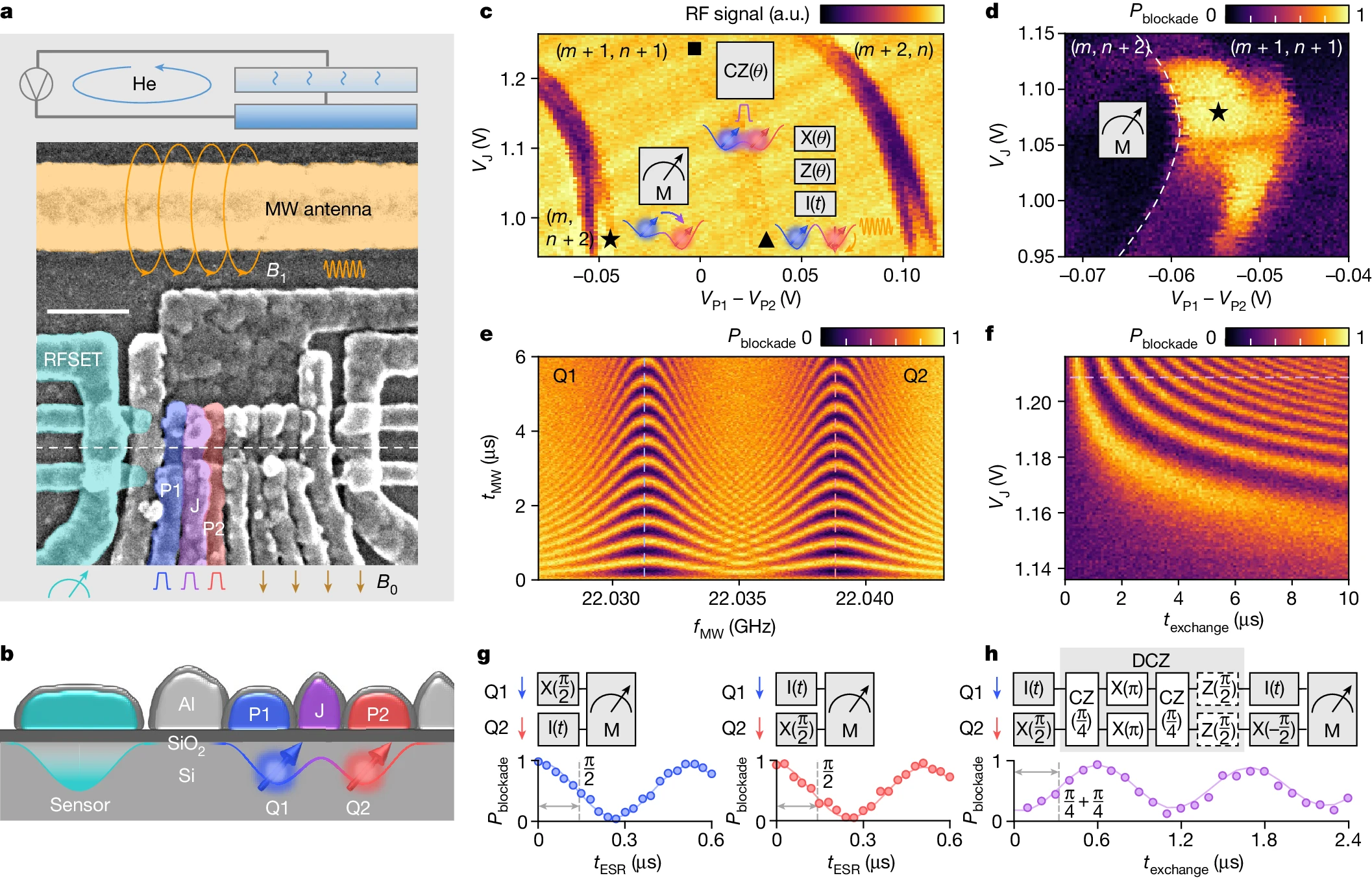Researchers at Diraq have significantly advanced quantum computing by operating spin-based quantum computers at temperatures 20 times warmer than current systems. This breakthrough, published in Nature, could lead to more powerful, cost-effective, and energy-efficient quantum systems. The warmer operating temperature allows for integrating conventional electronics with quantum systems, a crucial step for fault-tolerant quantum computing. Experts from the University of Sydney/Microsoft, Riverlane, and Quantum Machines have praised the research, noting its potential to accelerate the development of practical, large-scale quantum computers.
Quantum Computing Breakthrough: Operation at Warmer Temperatures
Researchers at Diraq have made a significant advancement in the field of quantum computing, as reported in a recent Nature paper. They have successfully operated spin-based quantum computers at temperatures 20 times warmer than current systems. This development is a crucial step towards the creation of powerful, cost-effective, and energy-efficient quantum systems.
High-Fidelity Spin Qubit Operation Above 1K
The researchers demonstrated “High-Fidelity Spin Qubit Operation and Algorithmic Initialisation Above 1K,” a temperature compatible with the operation of conventional electronics. This compatibility is crucial as it allows for the integration of conventional electronics with quantum systems. Such integration is necessary for the complex error correction codes required for fault-tolerant quantum computing. This could potentially lead to the development of a spin-based quantum chip with millions of qubits.
Expert Commentary on the Research
The research has been lauded by experts in the field. Prof. David Reilly from the University of Sydney noted that the heat generated by controlling qubits poses a significant challenge to scaling up quantum devices. The work by Huang and colleagues at Diraq demonstrates a spin qubit platform that can operate at elevated temperatures, making it somewhat immune to the heat from control.
Steve Brierley, CEO of Riverlane, a quantum engineering company, also praised the research, stating that it is an important milestone for the field of spin-based quantum computing. He noted that Diraq’s hardware has reached a standard where it’s now possible to run complex error correction techniques, a necessary step for fault-tolerant quantum computing.
The Significance of Operating Spin Qubits at Elevated Temperatures
Dr. Yonatan Cohen, co-founder and CTO of Quantum Machines, emphasized the significance of operating spin qubits at elevated temperatures. This breakthrough implies that we can now operate these qubits in environments that are ‘merely very cold’ as opposed to the ‘extremely cold’ temperatures previously required. This significant difference greatly simplifies the scaling process, thereby accelerating the journey towards the development of large-scale, practical quantum computers.
The Future of Semi-Conductor Quantum Computing
The encoding of qubits in semiconductor spin carriers has been recognized as a promising approach to a commercial quantum computer that can be lithographically produced and integrated at scale. However, the operation of the large number of qubits required for advantageous quantum applications will produce a thermal load exceeding the available cooling power of cryostats at millikelvin temperatures. As the scale-up accelerates, it becomes imperative to establish fault-tolerant operation above 1 K, at which the cooling power is orders of magnitude higher. This research by Diraq is a significant step in overcoming these challenges and paving the way for scalable and fault-tolerant quantum computation.
External Link: Click Here For More

